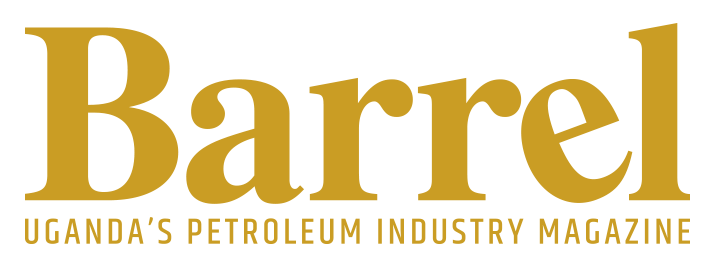The $19 billion Dangote Refinery was commissioned on 22nd May 2023. It has the capacity to refine 650,000 barrels per day. The Dangote Refinery complex sits on 10.2 square miles along the Atlantic Ocean at the Lekki Free Zone in Lagos, Nigeria, the largest city in Africa. It is privately owned by the Dangote Group, but the state-owned Nigerian National Petroleum Company Ltd (NNPC) has a 20% shareholding stake. It is expected to start operations later this year. It is the largest single train refinery in the world. This means that all the 650,000 barrels will be refined in one distillation column at a time. At maximum production, the refinery will produce 59 million litres of Premium Motor Spirit (PMS) and 9 million litres of diesel a day. This will be able to satisfy all of Nigeria’s petroleum products needs and even have excess to export to its neighbouring states. The refinery will turn Africa’s leading oil producer into West Africa’s export hub for petroleum products, making Nigeria the only net importer of petroleum products in Sub-Saharan Africa.
Context
Commercial oil reserves were first discovered in Nigeria in 1957. Its current oil reserves are estimated to be at 37 billion barrels. In 2022 Nigeria produced 1.3 million barrels per day, making it Africa’s largest oil producer. Despite this huge crude production profile, Nigeria imports more than 90% of all its liquid petroleum products, despite having four state-owned refineries, with a combined refining capacity of 445,000 barrels per day. The graph below shows the performance of current state-owned refineries in Nigeria. According to Knoema, Nigeria’s petroleum demand is equivalent to 558,000 barrels per day. In 2022 Nigeria spent $23.3 billion, almost half of Uganda’s GDP on petroleum products imports.
Source: Nigerian National Petroleum Corporation
Design
The crude is delivered by ships to the maritime Single Point Mooring (SPM) system, anchored 25km into the Atlantic Ocean. The crude is then delivered through the subsea pipelines, to the refinery trestle on the coastline. The crude is then taken to the storage tanks, via the trestle pipelines. There are a total of 16 crude oil storage tanks, each with 120 million capacities. To put this into scale, all of Uganda’s recoverable oil reserves can be stored at this facility.
Adjacent to the refinery is the 3 million metric tonnes of Urea based fertiliser plant. It is the 2nd largest Urea fertilizer plant in the world. It will export 2m tons per year to Asia and America.
The crude is then pumped to the Crude Distillation Unit (CDU). The CDU covers an area of 300,000 sq meters. Its main units include, the Desalter, reflash column and the Atmospheric Distillation Unit (ADU). The ADU is 112m high, 12m diameters and weighs 2500 tonnes, equivalent to a 40-storey building. It is the largest distillation column in the world, able to process all the 650,000 barrels a day. It was erected using a 5000 metric tonnes crane—there are only three cranes with that capacity the world.
The refinery has a 435 MW power station, which will meet all the electricity needs of the entire complex and have surplus to power nearby towns. The power plant will utilise flue gas from the regenerator and other units around the refinery for steam generation that will run the turbines to produce electricity.
The refinery will also have a Residue Fluid Catalytic Cracking (RFCC) unit. It is the heaviest steel refinery equipment in the world, it weighs 3000 tonnes. It took 10 hours to move it 12km from the jetty, where it was delivered by a cargo ship to the refinery site.
The RFCC unit is commonly known as the money-making machine in a refinery, as it turns low value heavy hydrocarbons into valuable lighter components, such as gasoline and diesel. The spent catalyst from the RFFC will be used as raw material in cement manufacture.
The refinery will also have a sulphur recovery unit (32,000 t/yr), a 838kt/year polypropylene production unit, a hydrogen generation facility (200,000Nm3/hr) and a fertiliser complex.
The Dangote Group employed the world’s best brains and contractors in refinery knowledge to pull off this feat. Engineers India Ltd, India’s premier engineering consultancy and technology licensing company was awarded the EPC contract. Honeywell UOP, EMRE (ExxonMobil), DuPont, Jacobs, Air Liquide, INEOS and Schneider Electric are some of the top industry companies contracted to supply the specialised equipment and technology needed to set up the refinery complex.
During construction, a purpose-built port with a jetty was set up, with a load-bearing capacity of 25 tonnes per square metre, to facilitate equipment delivery to the refinery complex site. 65 million cubic metres of sand was dredged from the ocean, a process that took 18 months and cost $337 million.
Analysis
Running a refinery is a low-margin, high volume business. Therefore, for the refinery business to be profitable, consistent operation and optimal production are critical. To achieve this, there is need for a highly skilled and motivated technical team, with a very strong management system running the refinery. Maintenance schedules have to be adhered to and necessary repairs done without delay. Such pragmatic systems have deluded state-owned refineries in Nigeria, leaving them in a very dilapidated state. The Dangote Group, which is one of the richest African group of companies, has a long track record of running large factories i.e. Dangote Industries Ltd successfully. This gives some comfort that they will replicate the same principles in running the Dangote Refinery complex. Indeed, the Dangote Group has recruited Sanjay Gupta as the CEO and Giuseppe Surace as the Chief Operations Officer for the Dangote Refinery complex, both of whom have vast experience in running refineries around the world. They are also training over 900 engineers, with hands-on training in Indian refineries; who will run the day-to-day activities of the complex.
Benefits
Once the refinery is operational at full capacity, Nigeria is set to save about $23.3 billion in foreign exchange and earn about $11 billion from petroleum products exports. It is also expected that the refinery will create over 100,000 direct and indirect jobs. This will go a long way towards easing the extremely high unemployment rate. The fertilizer petrochemical plant will be a very big boost to agriculture in Nigeria and West Africa.
In the past Nigeria has suffered from severe fuel shortages, even though it is one of the largest crude oil producers in the world. The Dangote Refinery is set to reverse this and ensure Nigeria’s fuel security.
The refinery is also likely to encourage development of downstream petrochemical industries looking to capitalise on the bi products of the refinery complex.
References
Arise News, 2021. Fuelling Nigeria’s Future with the world’s biggest refinery, London: Arise News.
Awojulugbe, O., 2021. What you need to know about Nigeria’s ailing refineries and their perennial repairs. [Online]
Available at: https://africacheck.org/fact-checks/factsheets/factsheet-what-you-need-know-about-nigerias-ailing-refineries-and-their
[Accessed 12 August 2023].
Dangote Petroleum Refinery & Petrochemicals Documentary. 2023. [Film] Nigeria: Dangote Group.
Knoema, 2022. Nigeria’s Petroleum Consumption. [Online]
Available at: https://knoema.com/atlas/Nigeria/topics/Energy/Oil/Petroleum-consumption
[Accessed 12 August 2023].







